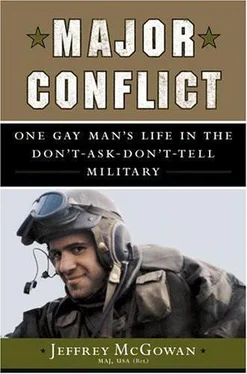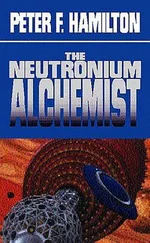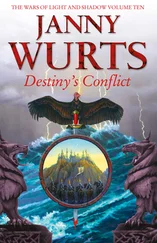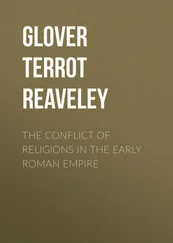I’d always believed that everything was possible, that any problem put in front of me could be solved with hard work, strong will, and unwavering determination. So I thought that this problem, this feeling of incompleteness and need for companionship, wouldn’t be any different. I’d figure out a plan, execute it, and presto ! I’d be whole, problem solved. I was wrong. In the end the problem was, in fact, unsolvable, at least unsolvable as long I stayed in the military. At some point I’d have to make a choice.
As we landed at Rhein-Main Airport I pushed all these thoughts from my mind and did what I usually did: focus on my next assignment, focused on work at the expense of my feelings. I knew I’d be promoted to the rank of captain soon, and with that commission the possibilities would be endless.
In the end, I just couldn’t continue with the charade. Initially, I worked harder than ever, taking on the toughest assignments in the hope that I might beat the odds, redefine the game, and find my way. But at the same time, I was finally realizing that it was time to move on.
Once I’d made the decision it felt as if a great fog had lifted. Everything in my life started to ring as clear as a bell. I knew that it would be hard, that I’d have to start all over, but I knew any difficulties would now be cushioned by the fact that I’d never have to lie about myself again.
We all make sacrifices. We all make compromises. I wanted to be a soldier. So I compromised for a while. I sacrificed a part of myself in order to achieve my goals. But had I continued on any longer, my accomplishments would have amounted to a Pyrrhic victory. I wasn’t prepared to keep compromising. I left the military in order to save myself. This book is that story, a unique inside look at the U.S. military, where I served as a gay soldier in the Gulf War.
A R 635-100
S-12 Moral or professional dereliction in interests of national security.
(7) Commission or attempted commission of a homosexual act.
Upon substantiation of allegation this gives rise to serious doubt as to the advisability of permitting the officer in question to retain a commission or warrant and requires a review of his overall record. The commanding officer will refer the individual for medical evaluation, immediately revoke his security clearance and deny any access to classified defense information.
Punishment under Uniform Code of Military Justice, Article 15: Elimination action may be originated via court-martial.
The above are charges and specifications from the Uniform Code of Military Justice (UCMJ). What it states in layman’s terms is simple: once it is deemed that the accused is a homosexual or has engaged in a homosexual act, he will immediately be dismissed from the U.S. armed forces regardless of tenure or past military record.
Imagine, if you will, having to live with this statute’s consequences hanging over your head for most of your adult life. Imagine having to worry every single step of the way, on assignment as a commander on the battlefield during the Gulf War, during peacetime in Kuwait and Germany, as a special weapons officer in the nuclear reliability and security program, that somehow, someone has found out, and that someone is now revealing your secret to someone else, effectively ending your career, a career you’ve devoted yourself to heart and soul, a career you’ve truly believed in from day one, a career that was a childhood dream, a calling. Forget becoming a colonel. Don’t even think about becoming a general. That’s all over now. Everything you’ve done in your life up to this point has now become null and void. All because of your sexual orientation. All because you’re a man who loves men. All because that orientation was deemed, a very long time ago, somehow suspect and a threat to the interests of our national security, not to mention simply unbecoming of an officer and a gentleman.
I am Major Jeffrey McGowan. I lived under just these conditions for twelve years while proudly serving this great country of ours. I now respectfully add my voice to the ever-growing chorus of gay former soldiers who’ve served well and served proudly under the cloud of a policy that makes the challenge of the military an even greater one than it needs to be.
I have no ax to grind. I knew what I was getting into. And I’m proud of my accomplishments in the military. This book is merely my attempt to shed some light on the issue and perhaps give hope to the many patriotic gay men and women who even now, even today, are serving honorably in the U.S. armed forces, men and women in Iraq, in Afghanistan, and all over the world, working hard (and sometimes dying) to defend the interests of our country and to preserve our unique way of life.
More than anything, however, this book is a personal journey, one man simply coming clean with himself, telling the truth about being a gay man in the military, as an officer and as, I hope, a gentleman.
CHAPTER ONE
Toy Soldiers and Saris
I’ve always wanted to be a soldier. In fact, I can’t remember a time when I could imagine being anything else. It was, I think, my destiny; my path was preordained. I guess I was lucky since this tunnel vision made life easier for me. While friends flailed around in their late teens and twenties, changing majors, jobs, cities, I stayed the course. There was never any question in my mind. And I knew this at a very young age. It just always felt like some fundamental part of my being. Becoming a soldier seemed as necessary to me as fulfilling the most basic of needs. There was hunger, thirst, sleep, and then there was soldiering. Later on there would also be sex and love, but I don’t want to get ahead of myself.
I don’t come from a military family. In fact, though the men in my family served in the armed forces, they served only when drafted, and when their term of enlistment was up, they hurried back to civilian life. A man had a duty to his country, I was told, but once that duty was fulfilled there were far better things to do with your time than playing with guns and bombs, especially if you lived in the greatest city in the world.
That city was New York, of course, where my family had lived since the turn of the last century. I’ve traveled all over the world as a soldier, and I still believe that New York City is hands down the most amazing place on the planet. To grow up in New York is like being born with a special talent, like being given something extra. Rich, poor, white, black, Asian, Latin, Arab, Jew, gay, straight, and all points in between, nowhere on earth does such diversity exist side by side in such relative harmony.
And nowhere is the mix more pronounced than in Queens, particularly in Jackson Heights, where I grew up. Ironically, the area was originally developed in 1908 as a white, middle-class “restricted residential community” by a group of real estate men in anticipation of the opening of the Queensboro Bridge in 1909. It was meant to be a suburban escape from the increasing ethnic mix of Manhattan. The only diversity in this early Jackson Heights, before restrictions against Jews were lifted after World War II, was, oddly enough, a thriving community of gay vaudevillians who began moving in after the number 7 train was built in 1917, connecting the neighborhood directly to Times Square. Since the forties the neighborhood has morphed into one of the most ethnically diverse areas in the country. When you walk down Thirty-seventh Avenue, it’s like being in Shanghai, Moscow, Calcutta, and Bogotá all at once. Walk a block down any main drag in the neighborhood and you’ll likely hear a half-dozen languages being spoken and pass a half-dozen restaurants, each serving totally different ethnic cuisines. Though the whole world is represented, the newer residents are now primarily South Asian and Latino, and you’ll have a better chance of seeing a woman in a bright sari passing an Ecuadoran restaurant serving roast guinea pig than coming across, say, a Carrie Bradshaw wannabe in her favorite Manolo Blahniks on her way to cocktails. I feel lucky to have grown up in this colorful, vibrant neighborhood. Like many neighborhoods in New York, especially those in the outer boroughs, Jackson Heights feels like a small town, a little village tucked in the great metropolis, a place where people know one another and take the time to say hello.
Читать дальше












